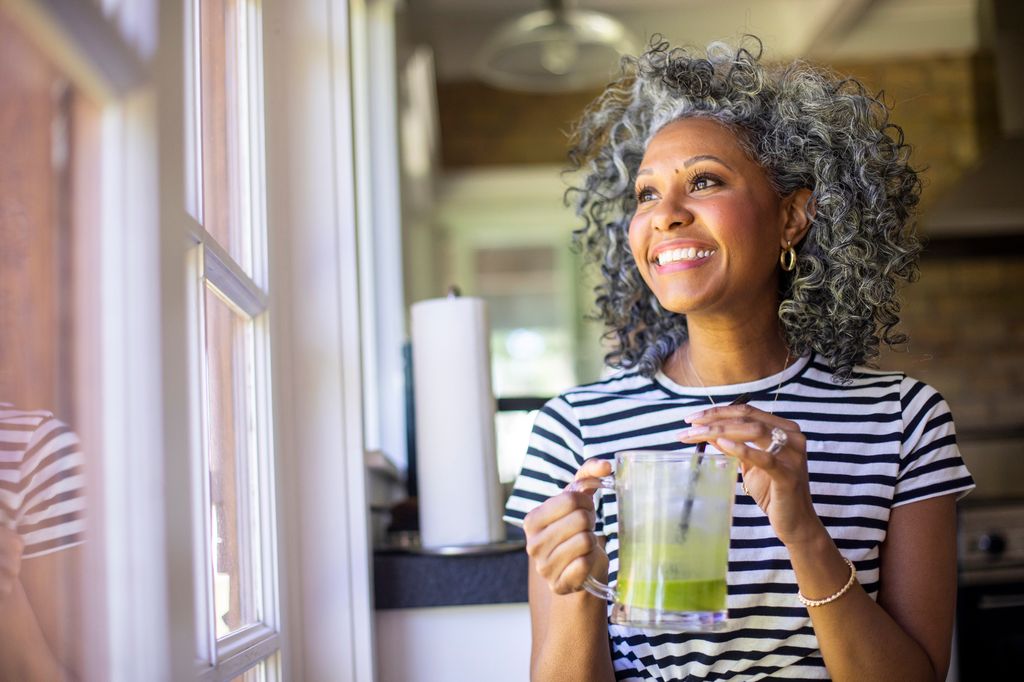If you dabble in the world of wellness, you’ve likely heard the team longevity.
Longevity refers to not the number of years we live, but the quality of those years, explains Immunologist Dr. Jenna Macciochi. “Longevity is about how long you can live a life free from serious illness and enjoy physical, mental, and emotional wellbeing.
“Longevity emphasises thriving at any age, especially in later life, a time when maintaining vitality, independence and a sense of purpose becomes increasingly important. Longevity is sometimes referred to as health span – the number of healthy years you live, rather than the total number of years.”
Dr. Jenna, who is a Head of Innovation for supplement brand , explains that longevity is the difference between existing and truly flourishing.
“Nowadays, it’s realistic to live to age 80 and above, but the average health span is closer to 60 years – meaning we could potentially spend the last 20 years of our life in poor health.”
Longevity encourages us to preserve our health, strength, cognitive function and resilience so that the later years are filled with a sense of wellbeing that allows us to live fully, Dr. Jenna says.
What impacts longevity?
There are a lot of factors that can impact our longevity, cautions Dr. Jenna.
1. Lifestyle
“Chronic stress, poor diet, lack of physical activity, inadequate sleep and exposure to environmental toxins are some of the most significant contributors to a lack of longevity,” says Dr. Jenna.
“These factors promote inflammation, oxidative stress and metabolic imbalances, all of which are known to speed up the various hallmarks of cellular ageing and increase the risk of chronic diseases. Other contributors include alcohol (sorry!) by disrupting sleep patterns, upsetting the gut microbiome and causing more unwanted inflammation.”
READ: 9 easy-to-follow food tips for living joyfully
2. What we eat
“One of the greatest challenges to longevity is our modern food environment,” says Dr. Jenna.
“We are constantly surrounded by highly processed, calorie-dense foods that are low in nutrients but engineered to be highly palatable and addictive. These foods can disrupt normal hunger cues, leading to overeating and poor dietary choices.
“They also take their toll on our gut microbiome which is an important arbiter of our longevity. The availability of these unhealthy options makes it difficult to maintain a balanced, nutrient-rich diet, which is essential for supporting longevity.”
3. Loneliness
As well as nurturing our physical fitness, some of the longest-running studies on human longevity show that social fitness is key to living long and well.
“Social isolation and loneliness play a significant role in impeding longevity,” says Dr. Jenna. “Humans are inherently social creatures, and meaningful connections with others are crucial for mental and emotional wellbeing.
ADVICE: Tips for loneliness: try this expert-approved 5-minute hack next time you’re feeling lonely
“Loneliness and a lack of social support can lead to stress, depression and anxiety, which are not only detrimental to mental health but also contribute to physical health decline.”
Supporting longevity
“Supporting longevity is a holistic endeavour that involves nurturing the body, mind, and spirit through intentional choices and daily practices,” explains Dr. Jenna.
“By focusing on diet, lifestyle, mental wellbeing, and thoughtful supplementation, you can take meaningful steps toward a longer, healthier, and more vibrant life.”
Read on for Dr. Jenna’s advice for longevity…
Supporting longevity
Prioritise nutrition
The foundation of longevity is built on a diet rich in whole, nutrient-dense foods, rather than an over focus on a few superfoods.
Emphasising anti-inflammatory foods — such as leafy greens, berries, and lots of plant fibre with healthy fats like those found in avocados, nuts and seeds and oily fish — can profoundly influence your overall health and have been shown to support longevity.
Stay physically active
Regular physical activity is essential for preserving muscle mass, cardiovascular health and cognitive function as you age.
Ageing is an inflammatory event and exercise is one of the most anti-inflammatory activities we can do.
Engaging in a balanced exercise routine that includes resistance training, aerobic activities, and flexibility practices such as yoga can help you stay strong, agile and mentally sharp.
Physical activity also supports your mood, supports metabolic health and reduces the risk of chronic diseases. By making movement a daily priority, you can significantly enhance your longevity, ensuring that you remain active and independent well into your later years.
INSPIRATION: What midlife women want you to know about exercise
Support gut health
The health of your gut plays a pivotal role in your overall wellbeing and longevity. A balanced gut microbiome is linked to reduced inflammation, improved immune function, and better nutrient absorption.
To nurture your gut health, incorporate fermented foods, prebiotics and probiotics into your diet.
DISCOVER: Why gut health is so important during menopause according to a nutritionist
Ancient + Brave’s ‘‘ supports gut integrity because so much of the gut architecture is made of collagen and this decreases with age which can cause the gut to become leaky and add to the inflammatory burden on the body.
By maintaining a healthy gut, you’re laying the groundwork for a long and healthy life, free from the chronic inflammation that often accompanies ageing.
Prioritise sleep
Quality sleep is non-negotiable when it comes to longevity. During sleep, your body undergoes critical repair and regeneration processes, making it essential for maintaining cognitive function, emotional balance and physical health.
Aim for seven to nine hours of restorative sleep each night. To optimise your sleep, reduce screen time before bed, keep your bedroom cool and dark and establish a calming bedtime routine.
By prioritising sleep, you’re giving your body the time it needs to rejuvenate and prepare for the challenges of the day ahead. Incorporating into your evening ritual can further enhance your sleep quality. This blend, rich in adaptogens and bioavailable magnesium, helps promote relaxation and deep sleep, allowing your body the time it needs to rejuvenate and prepare for the challenges of the day ahead.
Manage stress
Chronic stress is a silent saboteur of longevity, contributing to inflammation, oxidative stress, and a host of age-related diseases. Managing stress is vital for slowing the ageing process and maintaining overall well-being.
RELATED: Is stress making your menopause worse? An expert explains
Mindfulness practices, meditation and breathing exercises can help you keep stress levels in check.
Nurture social connections
Longevity isn’t solely about physical health; it’s also deeply connected to your social and emotional wellbeing. Strong social connections provide a sense of purpose, boost mental resilience and have been shown to reduce the risk of depression and anxiety.
Engaging in meaningful relationships and maintaining an active social life are crucial for long-term health. Whether through family, friends, or community activities, nurturing these connections can add years to your life and life to your years.
Adopt a growth mindset
Embracing a growth mindset is another key to longevity. Lifelong learning and mental stimulation are essential for preserving cognitive function and keeping your mind sharp as you age.
Engage in activities that challenge your brain — whether it’s reading, learning a new skill, or pursuing hobbies that you’re passionate about. This mental engagement not only enhances cognitive health but also contributes to a richer, more fulfilling life.














